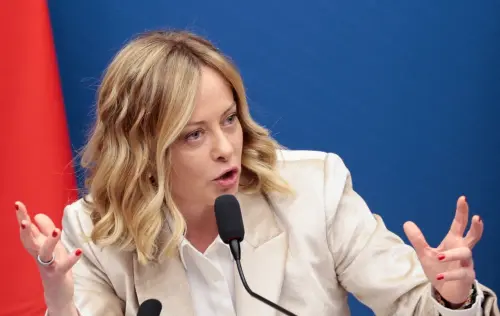Italian Prime Minister Giorgia Meloni is currently facing off with the country's judiciary, akin to her former political ally Silvio Berlusconi, aiming for a substantial reform of the legal system. While Berlusconi struggled to exert his influence over Italy's independent magistrates and prosecutors, Meloni appears to have a better chance at success without the conflict of interest that hindered her predecessor.
The judiciary is pushing back against the proposed reform, with plans for a rare strike later this month and resistance towards redirecting migrants to Albania under a government initiative. Meloni's government has criticized the judges for alleged political maneuvers and stands firm in its position, citing public support for its unwavering approach.
Meloni's administration proposes separating the judiciary to enhance impartiality, a notion supported by Francesco Paolo Sisto, the deputy justice minister. This push for reform mirrors Berlusconi's efforts to limit prosecution powers during his time in office.
The judiciary's discontent is evident in their opposition to the government's perceived interference in investigations, as seen in the strike planned for later this month. A rift between the government and the judiciary threatens to dominate the political landscape in the coming months.
Despite obstacles, including potential referendum requirements due to constitutional changes, Meloni's rising popularity may help her navigate these challenges. Analysts suggest that her confrontational approach resonates with an electorate disillusioned with perceived judicial shortcomings.
